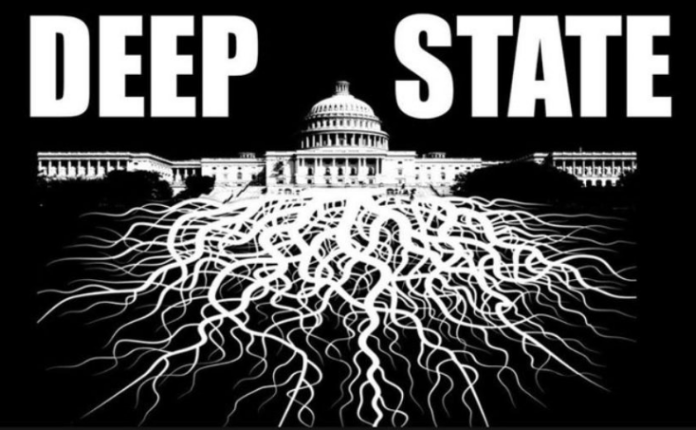
The U.S. Navy Judge Advocate General’s Corps and Office of Military Commissions will begin prosecuting Deep Staters in-absentia, meaning they can be indicted, charged, tried, convicted, and sentenced without setting foot in a courtroom, a JAG source told Real Raw News.
JAG made this decision upon confirming reports that Deep Staters named on sealed indictments were fleeing the country en masse to avoid military arrest, and specifically after CDC Director Rochelle Walensky eluded capture and hotfooted to a foreign country.
As reported on 7 November, the military had hoped to simultaneously grab Moderna CEO Stephen Bancel and Walensky at a posh Virginia eatery where they had scheduled a business dinner, but Walensky ghosted Bancel. JAG now says that while Bancel was feasting on baked stuffed clams, Walensky was at the Port of Miami boarding a cruise ship bound for the Bahamas, from where she hopped a flight to Heathrow, from where she caught another flight to Brussels.
“She is now running the CDC remotely on foreign soil,” our source said. “The nefarious types are evil, but not stupid, or have friends that aren’t stupid. They have considerable resources.”
Other Deep Staters to have fled the country include AG Merrick Garland and Secretary of State Antony Blinken.
On November 13, Vice Admiral Darse E. Crandall convened a meeting of his senior staff to discuss the legalities of holding trials in-absentia. In common law legal systems, the phrase is more than a spatial description. In these systems, it suggests a recognition of a violation to a defendant’s right to be present in court proceedings in a criminal trial. In 1884, the Supreme Court held that “the legislature has deemed it essential to the protection of one whose life or liberty is involved in a prosecution for felony, that he shall be personally present at the trial, that is, at every stage of the trial when his substantial rights may be affected by the proceedings against him. If he be deprived of his life or liberty without being so present, such deprivation would be without that due process of law required by the Constitution.” Exceptions exist in situations where a defendant, in writing, authorizes a court to conduct a trial in-absentia should he, for whatever reason, voluntarily not show up.
Vice Adm. Crandall opined that military tribunals were not bound by common law constraints and that Trump’s invoking of the Insurrection Act of 1807 authorized JAG to take any and all necessary action to bring traitors to justice. He also said fleeing the country to avoid arrest was tantamount to skipping bail, a voluntary action.
Legality and the Insurrection Act aside, we asked our source about the ethics of holding trials on persons not present to defend themselves.
“Since when has a Deep State operative defended himself? All they do is pound their fists and shout into the air ‘You can’t do this to me! Do you know who I am? You’ll pay for this.’ No Deep State agent has ever mounted a real defense. Why? Because the empirical evidence against them is so damn irrefutable all they can do is scream and shout. Admiral Crandall determined it’s within the scope of his abilities to do this,” our source said.
The in-absentia trials, he added, will not be held in a formal courtroom setting. Instead, either Vice Adm. Crandall or a delegate on his behalf will sit down with empaneled jurors in a conference room, where JAG will present its evidence and ask the panel to deliver a verdict, and, if proper, recommend punishment.
“The belief is Deep Staters eventually get sloppy. They get homesick. Eventually they’ll try to reenter the country, and we’ll get them. We can then avoid a lengthy courtroom trial and escort them straight to the gallows,” our source said.
In closing, he said JAG will still hold conventional trials in addition to those held in-absentia.